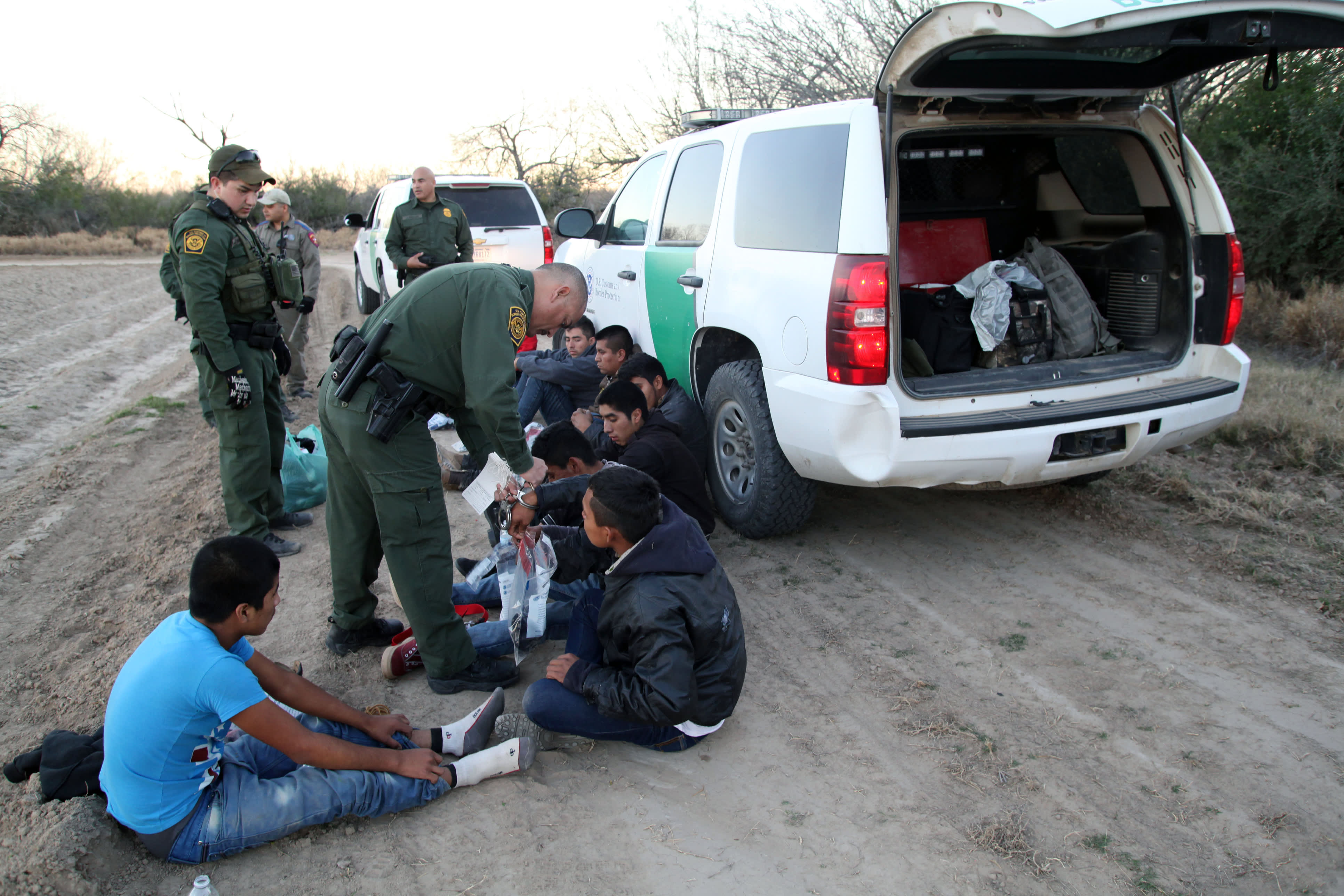
The Consumer Financial Protection Bureau on Monday filed a lawsuit against Libre by Nexus, claiming the company is preying on immigrants through a bond scam that traps participants into paying expensive fees.
According to Monday’s lawsuit filed by the CFPB in partnership with Massachusetts, New York and Virginia attorneys general, Libre works with detainees and their families — typically Latino immigrants who speak little to no English — to secure their release from U.S. Immigration and Customs Enforcement detention centers on bond while they wait for their immigration hearings.
Once the immigrant is released from ICE custody, Libre drives the detainees to a local restaurant or company office and pressures immigrants to sign “abusive” contracts written exclusively in English that charge high fees, the CFPB claims.
The regulators claim that Libre led immigrants to believe they were paying off their immigration bond, when in reality they were simply paying non-refundable fees to Libre. Under Libre’s contracts, detainees are required to pay an upfront fee equivalent to 24% to 30% of the immigration bond, as well as a $420 monthly fee for a GPS-tracking ankle monitor, the CFPB claims.
But immigration cases can take years to resolve, so immigrants can end up paying far more for Libre’s services than they would under a refundable ICE bond, according to the lawsuit.
The CFPB claims that someone with a $10,000 bond and a three-year immigration case could end up paying $17,000 in fees for the GPS tracker. Regulators said Monday that the GPS monitors are not required by federal authorities, but are commonly used by bail bond companies to ensure that immigrants show up to their hearings.
Libre’s president and CEO, Mike Donovan, categorically denied all of Monday’s allegations and said he was looking forward to the company’s day in court in a statement to CNBC Make It. “Libre by Nexus is committed to fighting for immigrants scarred by the torture of ‘civil’ immigration detention. While we have fought to release tens of thousands of immigrants from detention, especially during the last four years, the AGs have taken time and money to investigate our company,” Donovan said.
“Libre presented itself as a lifeline to help people stuck in limbo at immigration facilities. But we believe it was a wolf in sheep’s clothing,” David Uejio, CFPB acting director, said in a statement Monday. “Stopping these kinds of cash-grab schemes is part of the Bureau’s commitment to addressing racial injustice in the market.”
Libre has “made a business out of preying on the vulnerabilities of terrified immigrants who pose no threats and only want to see their families again and fear deportation if they were to stay in federal custody,” Mark Herring, Virginia attorney general, said during a press call Monday.
In addition to the long-term, exorbitant fees, Libre also allegedly threatens immigrants out on bond with detention and deportation if they do not pay. While Libre’s statements lead immigrants and their families to assume it’s affiliated with ICE, the lawsuit claims the company is actually not a licensed bail bond agency. It’s just a middleman with no affiliation with U.S. agencies.
Any consumer financial product or service that thrives on deception is illegal, as is misleading consumers and issuing debt collection threats, Uejio said. “These actions are harmful to all of us and undermine our collective economic prosperity,” he added.
The CFPB’s lawsuit is seeking to bar Libre from continuing to engage in deceptive, abusive or unlawful conduct, as well as asking the court to order Libre to provide restitution to consumers and impose fines and penalties.
“This lawsuit should send a clear message to all who seek to exploit and take advantage of our most helpless communities that we will use every tool in our arsenal to end your unlawful activity and the suffering you inflict,” Letitia James, New York attorney general, said in a statement.
Libre’s Donovan took aim at the regulators on Monday, saying that “while the federal government continues to detain scores of immigrants, the [attorneys general] have ignored the fact that these detention centers operate within their own borders.” Donovan said he welcomes this action, noting that these inquiries finally can be “brought out of the shadows and into one courtroom.”
“Libre is proud of its work and believes sunlight is the best disinfectant. We plan to vigorously defend this suit and prevail at trial,” Donovan said.
Along with Monday’s lawsuit filed by regulators, Libre is facing a consumer class action that alleges company led immigrants to believe it was their only option to leave detention and that Libre could return them to ICE custody should they fail to pay.
Check out: The best credit cards for building credit of 2021




